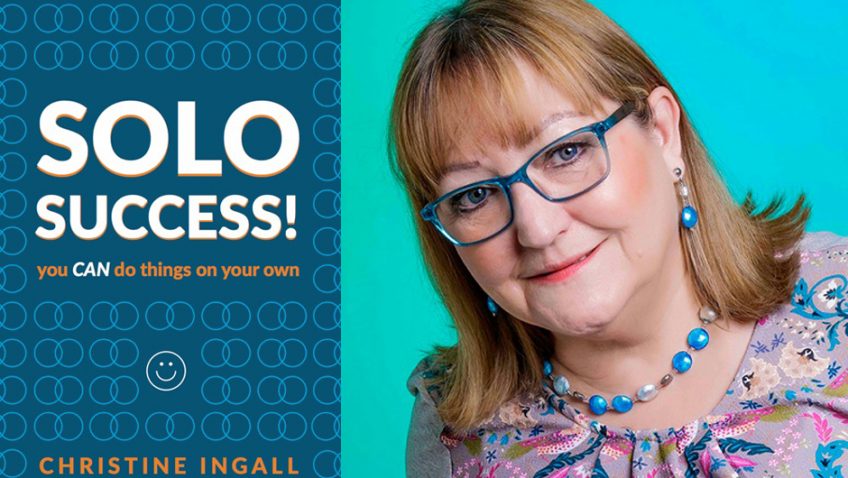In the UK in 2017, 7.7 million people live in one person households, including 3.8 million people [almost half the total] who are aged 65 and over. (Office for National Statistics)
People who live alone do so all year round, not just at Christmas. Yet, at this time of year, thousands of people who live alone are asked a question that is never asked at other times of the year: “Where are you going for Christmas?” The assumption behind this is that people who live on their own must be going somewhere else to be with other people. They live on their own, and so they must be lonely. They won’t be staying at home for Christmas on their own. And if they are, they must surely be guaranteed to be doubly lonely.
I believe there is a perception that the words alone and lonely have somehow started to mean the same thing, or have become interchangeable in modern usage. This might be the case, but the differences are crucial.
Alone is defined as: on one’s own; by oneself; unaccompanied; without assistance. In other words, a factual state of being, continuously or at a certain point in time: ‘Fred lives on his own/alone/ by himself now/at the moment/since his wife died.’
Lonely is defined as: solitary; companionless; isolated; sad because without friends or company. In other words, a state of existence that carries emotion, a feeling of missing or lacking something or someone: ‘Fred feels lonely now/since his dog died/he moved to the city/because he lost his job.’
Lonely Fred is clearly having a far worse existence than the Fred who simply lives alone!
But, that’s because lonely Fred is suffering from loneliness: a universal and complex psychological condition describing an emotional state of mind that can happen to anyone at any stage in life. Loneliness can be the result of many causes, such as a sudden change in personal relationships (separation, divorce, bereavement) or other circumstances, like moving to a new and unfamiliar location, changing jobs or beginning retirement.
Humans are social creatures with an innate and fundamental need to connect with each other emotionally and belong to social groups. People who suffer from loneliness typically feel isolated, unwanted and unloved. They can also crave human contact, but find it difficult to connect with other people because of low self-esteem and/or depression. Loneliness can seriously damage your health.

The good news is that loneliness can be both prevented and overcome. There is a lot of helpful support and advice available online such as https://www.mind.org.uk/information-support/tips-for-everyday-living/loneliness/#.WimtY7p2u1s.
Although it requires a conscious effort to make a change in your mind-set, the positive benefits are that you will feel happier, healthier and impact more positively on all those around you – family, friends, new acquaintances and total strangers. It is the quality rather than the quantity of social interactions that can ward off loneliness: three or four close friends and confidants is enough to ward off loneliness and reduce the negative health consequences of this debilitating state of mind.
So, before rushing in to ‘rescue’ someone from their own company (or wait to be rescued yourself) over the Christmas period, think about – and ask – whether your help is needed, or if YOU need help. Or, perhaps, whether the person you want to help needs you to get them started on a road of support and recovery that might start at Christmas, but go on into the next year.
Merry Christmas!
 Christine Ingall is a solo-lifestyle expert and author of “Solo success! You CAN do things on your own”. She is available for speaking, workshop and ‘meet the author’ sessions that touch on her expertise and uniqueness in engaging people, regardless of age, gender and relationship status, in the debate about how to live your life if you find yourself on your own, or want to gain independence – physically or in your head.
Christine Ingall is a solo-lifestyle expert and author of “Solo success! You CAN do things on your own”. She is available for speaking, workshop and ‘meet the author’ sessions that touch on her expertise and uniqueness in engaging people, regardless of age, gender and relationship status, in the debate about how to live your life if you find yourself on your own, or want to gain independence – physically or in your head.
Solo Success! You CAN do things on your own, is available on Amazon, at all good bookshops and via cjiwrites.com.





